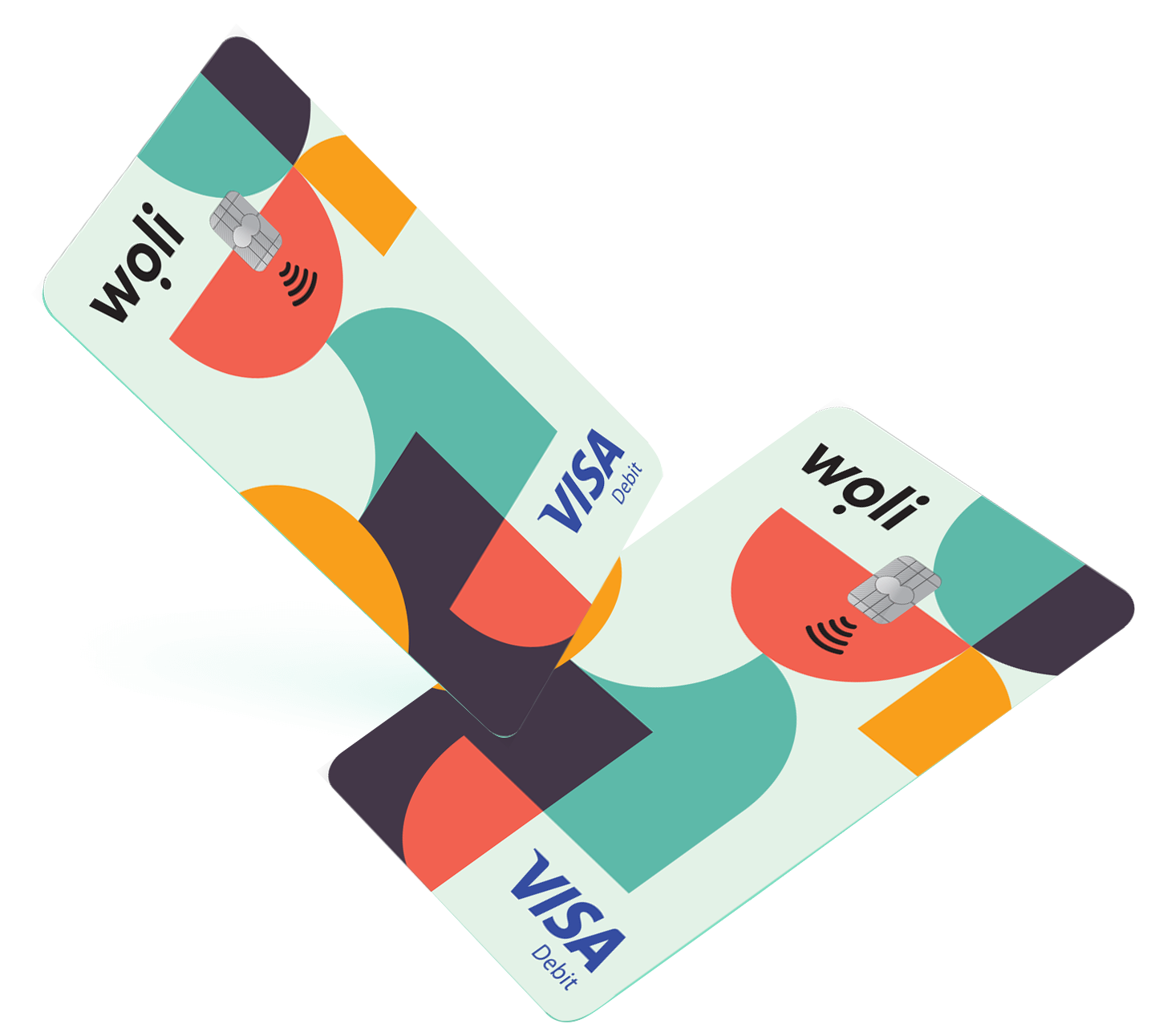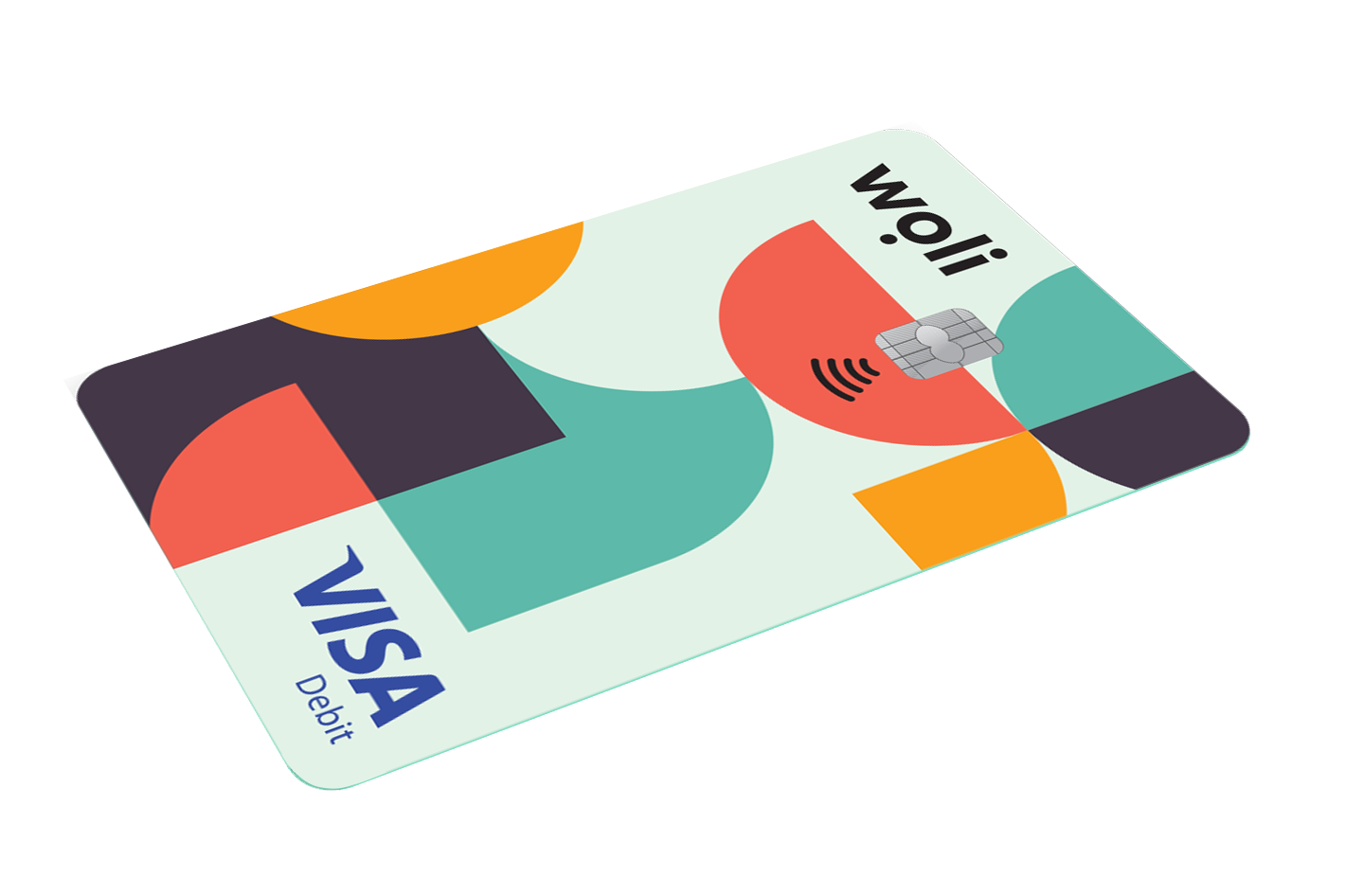You are home and relaxing after a demanding day at work. Your child is sitting next to you, engrossed in their cell phone, scrolling through their favorite online game store and staring at the new game titles. Suddenly, the silence is broken by the question that makes most parents… they tremble, “Mom/Dad, can you give me your card?”
Does all this remind you of something? Don’t stress! Take a deep breath and read our article to explain in simple words to your child exactly how a debit card works.
And you never know! You may never have to find yourself in this uncomfortable position again!
What is a debit card?
At Woli we believe – and always try to show it in practice, in various ways – that it all starts with the financial education of children. A child who learns from an early age how to properly manage his money, is a child who will develop into a truly responsible adult. It is important to offer our children, as early as possible, what we here call financial literacy. To explain to them everything they need to know in order to acquire the appropriate skills of proper financial management. So, in this context, let’s see how to explain to your child what exactly a debit card is.
A debit card is a card issued by a bank or a financial institution, for the purpose of executing transactions (in a physical or online environment), but also the access of its holder to his bank account. So every debit card holder can buy products and services, pay bills, “pick up” and deposit money through an ATM. A prerequisite for issuing a debit card? The existence of an account in the bank, in the name of the prospective holder. Without a bank account, there can be no debit card. And the example below proves why…
How does a debit card work?
With simple words, someone could say that a debit card works like a… water cooler! Confused? Think about it: You go to the cooler, press the tap, fill a glass with water. Do the same thing again with a second glass. And then with a third. You can fill as many glasses as you want, until the water runs out in the bottle of the cooler. If there is no water, no matter how many times you open the tap, it will not fill your glass.
So with debit cards. With your card linked to a bank account, your ability to buy goods, make payments or raise money is proportional to the balance in your account. That’s why debit cards are called debit, because they directly charge your account with the amount you just spent. Each debit card transaction means that the money you spent has been deducted from the respective account. Quite simply, with the debit card you spend money you already have. If you don’t have one, then you can’t spend it.
As we said above, debit cards are nominal. On their front side they have a unique 16-digit number (card number), the name of the holder and their expiration date. On the back you will find a three-digit number, the “Card Verification Value” (CVV). In the case of an online transaction with a debit card, all the above information is always requested, in order to complete the process.
What are the advantages of a debit card?
No one can deny that the use of debit cards has brought a number of advantages to our daily lives and to our financial transactions. What are they?
First and foremost, the fact that using a debit card minimizes the need to have cash in our wallet. Certainly, Greece is a country in which cash is still quite extended, but its use is clearly less than in the past. Let us not forget, after all, the contribution of the pandemic to this development. So, less or no cash in the wallet means that theoretically we are less at risk (e.g. from losing money or would-be robbers).
Also, from the moment they are issued, debit cards always belong to an electronic payment system. In our country, the most famous are those of Visa and Mastercard. What does this mean in practice? It means that transactions with our debit card are guaranteed and secure. Of course, it is enough for us to be careful where we use our debit card – especially in the online environment – and of course not to share our card details with others.
Finally, debit cards, quite simply, make our lives easier. They allow us to easily and quickly make transactions, physical and online, without effort and unnecessary delays. They provide us with access to our bank account 24 hours a day, whenever we want or need it. This gives us complete and ongoing control over our finances, while allowing us to feel safe in any time of need.
Is it a good idea to give a debit card to my child?
Certainly! For all the reasons you read above, but there is one more…
At the beginning of this article we talked about “financial literacy” of children. Issuing a debit card in your child’s name could be an important step in this direction. Through its use, your child would learn in practice the value of money and proper financial management. At the same time, he would have the autonomy and confidence to make his personal purchases immediately, without having to ask for your card.
Besides, you know well that today’s children are now “citizens” of the Internet. Digital citizens of a world where everything happens online and even at speeds … 5G! Perhaps, then, the time has come for mom and dad’s card to stay in the wallet. Maybe it’s time for your child to have their own card!
Does the idea of a “classic” debit card in your child’s name get a little nervous? Reason!
But there is a solution and it is called Woli, the first debit card for young people 8-18 years old, co-managed by parents!
Download the Woli app on Android or iOS now, follow the steps to add your child and get 30 days FREE on the premium BASIC subscription plan and a FREE physical Woli card!






